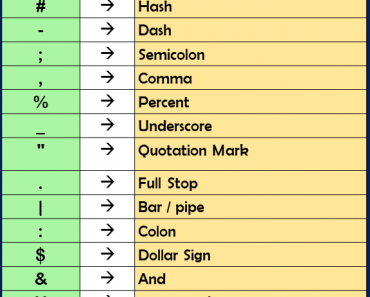in, on, or at this place.
in the same way What language is Rien? The French phrase de rien (pronounced “deu-r yeh”) is one that many students learn to translate as “you’re welcome.” But this common expression of courtesy actually means something slightly different.
What language is ICI? ICI is a general purpose interpreted, computer programming language originally developed by Tim Long in the late 1980s. It has dynamic typing and flexible data types, with the basic syntax, flow control constructs and operators of C. It can be considered broadly similar to Perl, with which it is roughly contemporary.
What does ick mean in slang? (slang) Used to express disgust, horror, etc. interjection. 1. 1. Ick is defined as an expression used to express disgust.
What is the opposite of ICI in French?
Etymologically, ici designates a nearby place and là designates a faraway place. (Latin had three gradations; ici comes from the nearmost one (hic), là from the furthest one (illac)). However, là has evolved in French in such a way that it is often neutral with respect to distance.
Beside this How do you respond to Merci Beaucoup?
“Merci beacoup” means “thank you very much” so you would say “You’re welcome” back. “De rien” means “You’re welcome”. As a french Canadian in Ontario, I would typically respond with “Pas de problème”. Which is pretty much an equivalent of “No problem”.
What is the meaning of desole? I’m terribly sorry. désolé ! sorry!
How do you respond when someone says merci in French? The usual response to merci is de rien (You’re welcome – literally, It’s nothing) or il n’y a pas de quoi. In a more formal context, you could say Je vous en prie or Je t’en prie.
Is ICI a verb?
Ići is an imperfective verb, therefore it matches the function of English’s progressive aspect.
What does il ya mean French? Notes: The French expression il y a, which can mean “there is” or “there are,” is one of the most important expressions in the French language. It is most commonly followed by an indefinite article + noun, a number + noun, or an indefinite pronoun. Il y a un chaton dans cette tasse. There’s a kitten in this cup.
What is the French days of the week?
2. How to say the days of the week in French
| English | French | Pronunciation |
|---|---|---|
| Monday | lundi | lun-dee |
| Tuesday | mardi | mar-dee |
| Wednesday | mercredi | mehr-cruh-dee |
| Thursday | jeudi | zhuh-dee |
• Dec 8, 2021
What does ISK stand for? ISK
| Acronym | Definition |
|---|---|
| ISK | Internet Starter Kit |
| ISK | International School of Kenya |
| ISK | Iso Suomen Kielioppi (book of Finnish grammar) |
| ISK | Inter Stellar Kredit (Eve Online currency) |
What does ICL mean on Snapchat?
What Does ICL Mean On Snapchat? ICL stands for In Christian Love. This slang is generally used during a conversation between two Christian. It is also used at the end of an E-mail like Thank you for reading my application, ICL, Alex.
What does IXK mean in texting?
Summary of Key Points
| ICK | |
|---|---|
| Definition: | Horrible (similar to eew) |
| Type: | Slang Word (Jargon) |
| Guessability: | 2: Quite easy to guess |
| Typical Users: | Adults and Teenagers |
What is à in French? The preposition à can mean at, in, or to and the preposition de can mean from, of, or out of. À can show point of departure and destination, cause and consequence, means and outcome. De can also indicate origin, point of departure, consequence, and belonging, as well as separation.
Can là mean here in French? “là” meaning “here” – French Language.
How do you respond to Tres bien?
The following responses are polite enough for a new acquaintance, but general enough for a good friend, too: Très bien, merci. Very well, thank you. Je vais bien, merci.
How do you say goodnight in French?
How do you greet a girl in French?
Is pardon a French word? Pardon is derived from the old French pardoner meaning, “to grant, forgive.”
Is Je suis desole?
Je suis désolé. vraiment désolé. I am sorry. I am truly sorry.
How do you say have a good day in French informal? In French, the normal way to say this is, “Bonne journée!“, which literally means “[Have a] good day!” and is specifically used in this situation. (Adrien Grandemange’s answer to ‘Bonne journée’ vs. ‘Bonjour’ sums it up perfectly.) The same phrase could be used in more or less formal situations.
Do’t forget to share this post !
